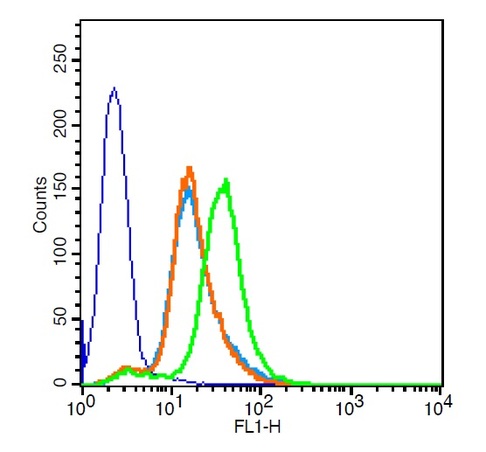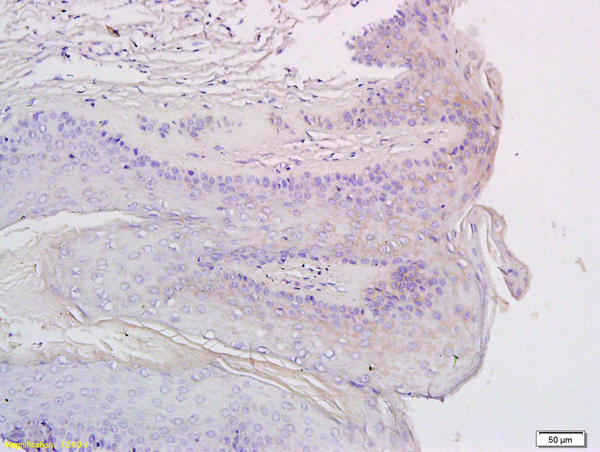
HCCLM3 cells probed with Rabbit Anti-CXCR3 Polyclonal Antibody, Unconjugated (bs-2209R ) at 1:100 for 30 minutes followed by incubation with a conjugated secondary (bs-0295G-FITC) (green) for 30 minutes compared to control cells (blue), secondary only (light blue) and isotype control (orange).
CXCR3 Polyclonal Antibody
BS-2209R
ApplicationsWestern Blot
Product group Antibodies
ReactivityBovine, Canine, Guinea Pig, Human, Mouse, Porcine, Rabbit, Rat
TargetCxcr3
Overview
- SupplierBioss
- Product NameCXCR3 Polyclonal Antibody
- Delivery Days Customer16
- ApplicationsWestern Blot
- Applications SupplierWB(1:300-5000)
- CertificationResearch Use Only
- ClonalityPolyclonal
- Concentration1 ug/ul
- ConjugateUnconjugated
- Gene ID12766
- Target nameCxcr3
- Target descriptionC-X-C motif chemokine receptor 3
- Target synonymsCd183, Cmkar3, C-X-C chemokine receptor type 3, IP-10 receptor, chemokine (C-X-C motif) receptor 3, interferon-inducible protein 10 receptor
- HostRabbit
- IsotypeIgG
- Protein IDO88410
- Protein NameC-X-C chemokine receptor type 3
- ReactivityBovine, Canine, Guinea Pig, Human, Mouse, Porcine, Rabbit, Rat
- Storage Instruction-20°C
- UNSPSC41116161
References
- CXCL11 promotes tumor progression by the biased use of the chemokine receptors CXCR3 and CXCR7. Puchert M et al., 2020 Jan, CytokineRead this paper
- Protective effects of CXCR3/HO-1 gene-modified BMMSCs on damaged intestinal epithelial cells: Role of the p38-MAPK signaling pathway. Yin M et al., 2019 May, Int J Mol MedRead this paper
- The Transcription Factor NFATc1 Supports the Rejection of Heterotopic Heart Allografts. Baur J et al., 2018, Front ImmunolRead this paper
- CXCL10 increases in human skeletal muscle following damage but is not necessary for muscle regeneration. Deyhle MR et al., 2018 Apr, Physiol RepRead this paper
- Anti-inflammatory and retinal protective effects of capsaicin on ischaemia-induced injuries through the release of endogenous somatostatin. Wang J et al., 2017 Jul, Clin Exp Pharmacol PhysiolRead this paper



